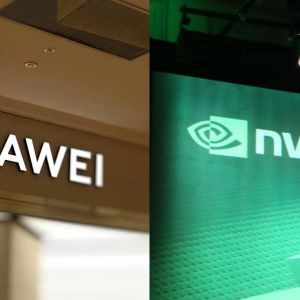Nvidia CEO Huang cautions about losing the Chinese market to Huawei with US sanctions
3 min read
In a wide‐ranging interview on the sidelines of Paris’s Viva Technology gathering, Nvidia’s CEO Jensen Huang cautioned that America’s self-imposed distance from China’s booming AI sector could hand the market to Huawei. Speaking to CNBC, Huang argued that US restrictions on selling high-end AI chips into China have an unintended outcome – they encourage Beijing’s biggest technology champion to cement its dominance at home and potentially supply the rest of the world. Huang asserted that Nvidia’s current processors lead the industry by roughly one product cycle, but he warned that if US companies refuse to engage with Chinese customers, “Huawei has got China covered, and Huawei has got everybody else covered.” In other words, by turning its back on China, the US risks empowering Huawei not only to serve its massive domestic base but also to challenge American firms abroad. Huang calls for a global technology stack China’s response to Washington’s tighter export controls has been swift. Beijing has substantially increased support for home-grown semiconductor makers, with Huawei at the forefront of its effort to construct a self-reliant AI-chip ecosystem. Even Ren Zhengfei, Huawei’s founder, conceded recently in a state-run newspaper that the company still trails US competitors by an entire generation of chip technology, an acknowledgment that only underscores Huawei’s ambitious push to close the gap. At the heart of Huang’s message was a plea to the global AI community to build on the American technology “stack” rather than the “limited” Chinese model. He pointed out that excluding half of the world’s AI researchers from US platforms is “not sensible,” because innovation thrives on collaboration and shared standards. “If the United States doesn’t want to partake, participate in China, Huawei has got China covered, and Huawei has got everybody else covered.” Huang. If Chinese developers remain siloed behind their own hardware and software layers, Huang argued, Beijing’s ecosystem will ultimately prevail by sheer scale. “If we want the American technology stack to win around the world, then giving up 50% of the world’s AI researchers is not sensible,” explained Huang. “So long as all the AI developers are in China, you know, I think [the] China stack is going to win. And so we just have to be mindful of near-term actions on long-term, unintended consequences,” he added. This debate over semiconductors and digital infrastructure comes amid heightened US-China trade tensions . Recent US measures have not only tightened chip exports but also threatened the visas of Chinese students studying critical subjects. China, in turn, accused Washington of derailing broader trade negotiations, especially after the US singled out Huawei in an advisory against using Chinese-made chips. The Nvidia boss also sees Europe’s AI opportunity Beyond Asia, Huang has also been touring Europe this week, praising both the UK and France for their AI ambitions. He hailed Britain’s research community as one of the world’s richest, prompting Nvidia to pledge fresh investments across the country. In Paris, he highlighted France’s capacity to “export AI” alongside its traditional energy goods, arguing that the European Union could develop its own robust market, independent of US or Chinese influence. “I think all the pieces of the puzzle are here. You got to take advantage of it,” Huang told CNBC, noting that the region’s collective GDP could soon mirror the size of its AI industry itself. He envisions intelligence, the development and deployment of AI, as the foundational layer underpinning every sector, from manufacturing to finance. Given the EU’s economic size, he predicts that long-term investments in AI will rival the bloc’s overall output. Ultimately, Huang’s message was twofold. By isolating China, US policy risks undermining American technological superiority, and by seizing opportunities in Europe, Nvidia can help foster a balanced global landscape for AI innovation. Whether the US heeds the Nvidia boss’ warnings, and whether Beijing’s chip-making ambitions will soon pay off, remains to be seen. KEY Difference Wire helps crypto brands break through and dominate headlines fast

Source: Cryptopolitan



